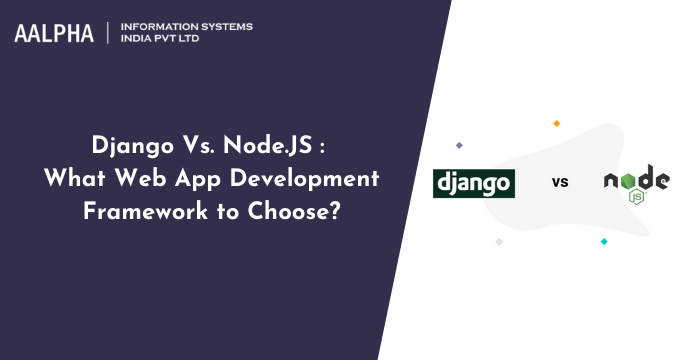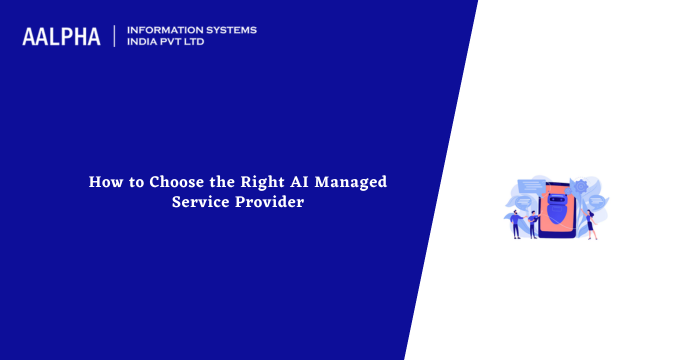Today web apps are an integral part of any business. Anyone who attempts to develop a web application needs to work with a great platform. Node.js vs Django is a typical disorder in selecting a high-performance and portable web development technology.
Node.js is a cross-platform, fast, powerful web application development environment. It is JavaScript-based and can be run on the server sides. It is a basic method that can be used to operate JavaScript out of the browser.
Django, on the other hand, is a Python application on a cross-platform. It aims to eliminate repeated activities and to create the foundation for rapid application growth.
Comparison of Node.js vs Django in terms of programming
-
Node.js
Scripting code for the basic application is made easier with the syntax. The learning curve for building a complete web application may appear risky because node architectural design, asynchronous programs, and native methods are necessary to understand.
However, if you know JavaScript already, it will become simpler because of the closely related syntax to start with Node.js. However, due to the complex nature of Node.js itself, you can spend more time coding.
Check: hire offshore node.js developers
-
Django
Django can be quickly learned, like Node.js. Furthermore, this framework will feel natural to you if you are already knowledgeable about Python. But to work with Django you will have to understand the techniques and features out of the frame and the MTV architectural design of the framework.
The framework follows a rigorously developed approach to implement them. It can also save you a lot of time by doing more work with less code. Moreover, Django provides good documentation.
Comparison in terms of architecture
- Node.js
The architecture in Node.js is distinctive from other server-side frameworks and enables development applications of the high end with a one-thread event loop architecture. This server-side operating environment gives the applications designed with its effectiveness and enables it to be readily accessible for the handling of requirements, since the input/output is not interrupted, and the requests process is asynchronous.
- Django
Django is an architecture focused on a Model-Template-View. The mobile platform provides a range of benefits that help create applications quicker, smarter, and better. Developers will concurrently work on many modules with one project, making the system a fast web application development platform. A small feature adjustment does not affect the program or other elements overall.
Comparison in terms of documentation
- Node.js
Node.js is an easy-to-develop tool. It has become a primary tool for skilled developers with the flexibility to design and customize templates. But the downside is that it is difficult for starters to get things right in the first place. One more challenge is that developing an app requires a long effort since you need to start building an app from scratch. Investing time in searching for implementing modules and a different place for testing is also essential.
Make sure that somebody in the team embraces JavaScript incredibly well, familiarity with Node.js will be a bonus for a team that operates on node.js ventures.
- Django
The template files system is integrated into Django. This can be well done by someone with HTML knowledge without knowing python programming. The development process is getting quicker because the ready-to-use templates could be useful to newcomers.
However, except for Node.js, it does not offer the flexibility to develop from start to end.
Comparison in terms of security
- Node.js
Since Node.js offers no predefined privacy controls, your developers may need a few additional steps to add security measures to guarantee the safety of your system.
Furthermore, your application may be prone to several attacks such as Cross-Site Scripting (XSS).
- Django
Security is taken very seriously by Django. It disinfects its input to avoid unauthorized entries through the web application input fields. SQL querying for blocking SQL injecting attacks is also done securely.
Comparison in terms of Customization
- Node.js
Node.js is a customized technology, which takes you places you on the front line. You will monitor how your web application is built and how it runs when you design it from the very beginning. This functionality is very much welcomed by trained Node.js developers who want to create and discover Node.js’ many features.
- Django
With its robust prototype and library scheme, Django has even more to offer. It removes a great deal of programming effort. But there is a breakdown; you cannot create more scalable applications that need a framework like most MVC frames. The versatility and customization scope are limited. The model-template-view-focused architecture has a limited amount of flexibility for developing apps that provide model-view-modeling and apps that have more customization characteristics and specifications from scratch.
Comparison Node.js vs Django in terms of scalability
- Node.js
A healthy pattern that enables smaller, autonomous, and flexible systems to be developed is the architecture for microservices. It facilitates the creation of applications for diverse and wide market uses.
Node.js and the architecture of microservices are mutually acceptable. More importantly, Node.js can support thousands of simultaneous applications without losing performance, however, microservices can build tiny modules for scalable software.
Node.js creates Real-Time Streaming apps, integrated apps, and data-intensive software, thanks to its non-blocking input/output, event-driven design, and microservice service.
- Django
Django has some restrictions on app customization and flexibility and has an edge in developing scalable apps due to its caching layer template and the accessibility of file transfer tools such as heavy application loading. The contents, many written texts, and more types of apps could be provided.
Caching the framework is the most popular necessity in scalable applications where many procedures and demands are to be served in a brief period.
Importantly, our web development company in India has expertise in building a scalble web applications using the best tech stack, get in touch with us.
Conclusion
Both Node.js and Django are specific web-based platforms. While Node.js is a server-side web framework, it is perfect for applications that require intensive data processing, such as social networking websites.
But on the other hand, Django is indeed a high-level, backend, and front-end development frameworks, such as full-stack applications, rapidly developing apps as primary needs, and developers at a beginner level.
For more information feel free to contact us!
Also check: Python development services




Share This Article:
Written by:
Muzammil K
Muzammil K is the Marketing Manager at Aalpha Information Systems, where he leads marketing efforts to drive business growth. With a passion for marketing strategy and a commitment to results, he's dedicated to helping the company succeed in the ever-changing digital landscape.
Muzammil K is the Marketing Manager at Aalpha Information Systems, where he leads marketing efforts to drive business growth. With a passion for marketing strategy and a commitment to results, he's dedicated to helping the company succeed in the ever-changing digital landscape.